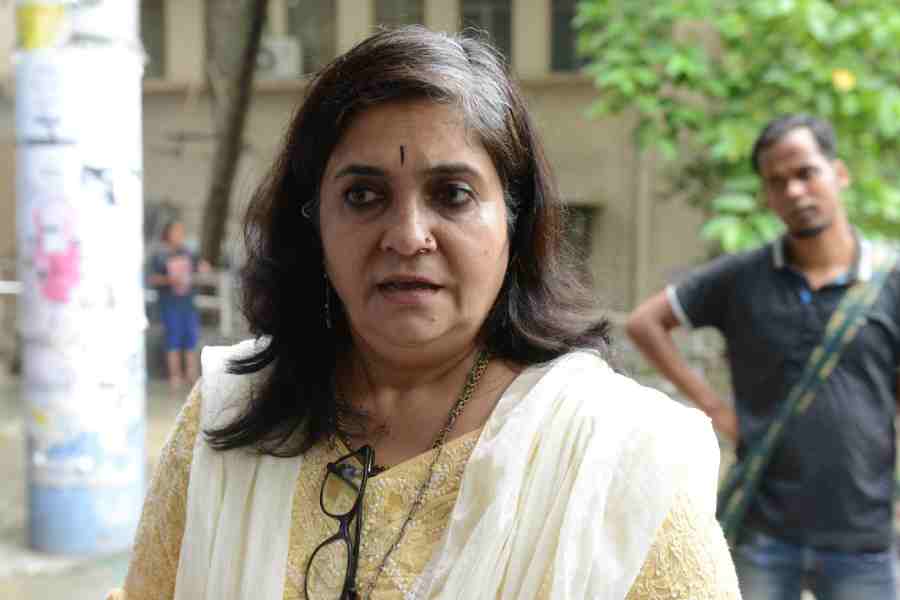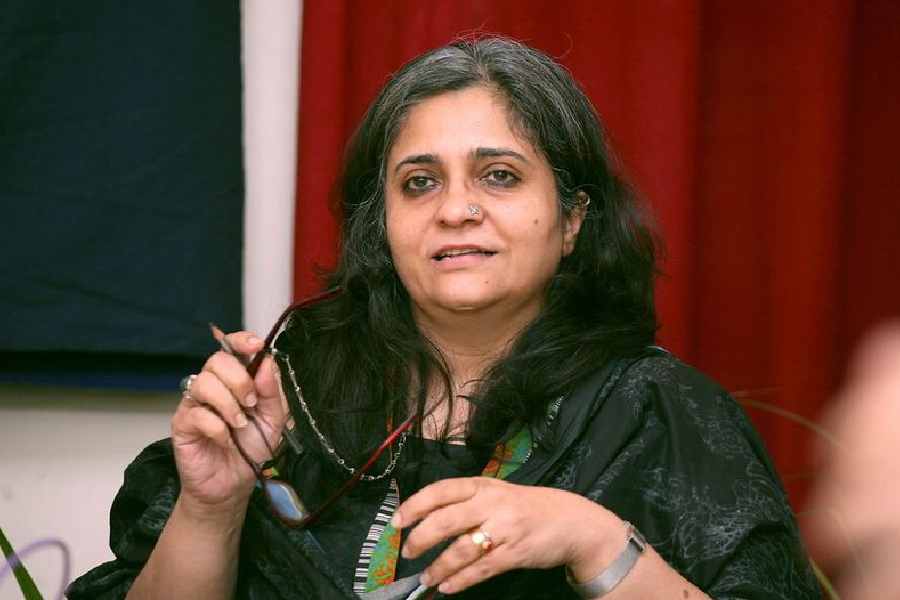The Supreme Court on Wednesday granted regular bail to rights defender Teesta Setalvad in a case related to alleged fabrication of evidence in connection with the 2002 Gujarat riots and called the high court order cancelling her bail "totally perverse".
Quashing the July 1 order of the high court that had asked Setalvad to surrender, a three-judge apex court bench of Justices B.R. Gavai, A.S. Bopanna and Dipankar Datta held that her custodial interrogation was not necessary as the chargesheet had been filed and most of the evidence was documentary in nature.
The Supreme Court noted that the high court judge had on the one hand, painstakingly elaborated that it was not necessary at the stage of bail to consider whether a prima facie case was made out but on the other, cancelled Setalvad's bail on the ground that she had not challenged or sought quashing of the FIR or the chargesheet.
“If the observations of the learned judge are to be accepted, no application for bail can be accepted unless the accused files an application for quashing the proceedings. To say the least, the findings are totally perverse,” Justice Gavai, heading the bench, said while dictating the order in open court.
The high court had on July 1 ordered Setalvad to surrender before the police for custodial interrogation, accusing her of making attempts to unsettle a democratically elected government and sully the image of the then chief minister, Narendra Modi, in connection with the riots and tried to send him to jail.
The Supreme Court had convened hours later past 9pm, in the midst of vacation and on a Saturday which is a court holiday, to shield Setalvad from arrest. It had stayed for a week the Gujarat High Court order rejecting her plea for regular bail. On July 5, the top court had extended the protection until further orders.
When the matter came up for hearing on Wednesday, Justice Gavai expressed displeasure at the manner in which the high court had dealt with the matter.
“We will be avoiding any detailed examination of evidence at this stage. We are at pains to say that in the order dated July 1, 2023, passed by learned judge, running into hundreds of pages, he has observed on one hand that evidence need not be analysed to see if prima facie a case is made out, has on the other, interestingly, observed that since the petitioner has not challenged the FIR under Section 482 CrPC (for quashing a criminal case)/ Article 226 (moving high court for quashing the case) / Article 32 (moving the Supreme Court for quashing), she cannot claim that a prima facie case cannot be made out," the Supreme Court said.
Justice Gavai said: “Our limited understanding is that bail may be granted on the basis of prima facie case, the possibility of accused tampering evidence or influencing witnesses, and evading ends of justice. Other considerations include the gravity and seriousness of the offence.
“If observations by the learned judge are to be accepted, then no application for bail at pre-trial stage can be entertained unless the accused files a petition under Section 482/ Article 226/ Article 32 proceedings. To say the least, these findings are totally perverse.”
The top court said Setalvad’s passport shall continue to remain in the custody of the sessions court and she shall not make any attempt to influence witnesses. The prosecution, the bench said, was free to move the apex court for modification of the order in case any attempt is made by the accused to influence witnesses.
Setalvad had been arrested on June 25, 2022, a day after a three-judge bench of the Supreme Court had dismissed the petition of Zakia Jafri, the wife of slain former Congress MP Ehsan Jafri, challenging the acceptance of a special investigation team’s clean chit to Modi in the2002 riots and suggested that “disgruntled officials”, along with others, attempted to “keep the pot boiling” for 16 years.
“...All those involved in such abuse of process, need to be in the dock and proceeded with in accordance with law,” the apex court bench had said.
The very next day, the Gujarat police registered an FIR against Setalvad, then DGP B.R. Sreekumar and former IPS officer Sanjiv Bhat.
Although the sessions court and the high court had at that time rejected her bail pleas, the Supreme Court had in September last year granted her interim bail with a directive that she seek regular bail from the high court.
Earlier on Wednesday during the arguments, senior advocate Kapil Sibal, appearing for Setalvad, pointed out that the June 2022 order directing a probe against the rights defender and others was passed by the apex court without even hearing her views. Sibal said the court had also refused to entertain Setalvad’s special leave petition, filed by her along with Zakia, challenging the clean chit given to Modi and others.
Additional solicitor-general S.V. Raju, appearing for the Gujarat government, strongly opposed the grant of bail.
Raju submitted that Setalvad had attempted to destabilise an elected government, accepted huge sums of money from a political leader and was not entitled to bail.
The top court noted that the facts which were considered by it in its July 1, 2023, order granting interim bail were still available to Setalvad, including that the appellant was a woman and the alleged offences dated back to 2002 while the FIR was registered 20 years later.
Justice Gavai pointed out that Setalvad’s release on interim bail in September last year was not called for questioning even on a single day.











